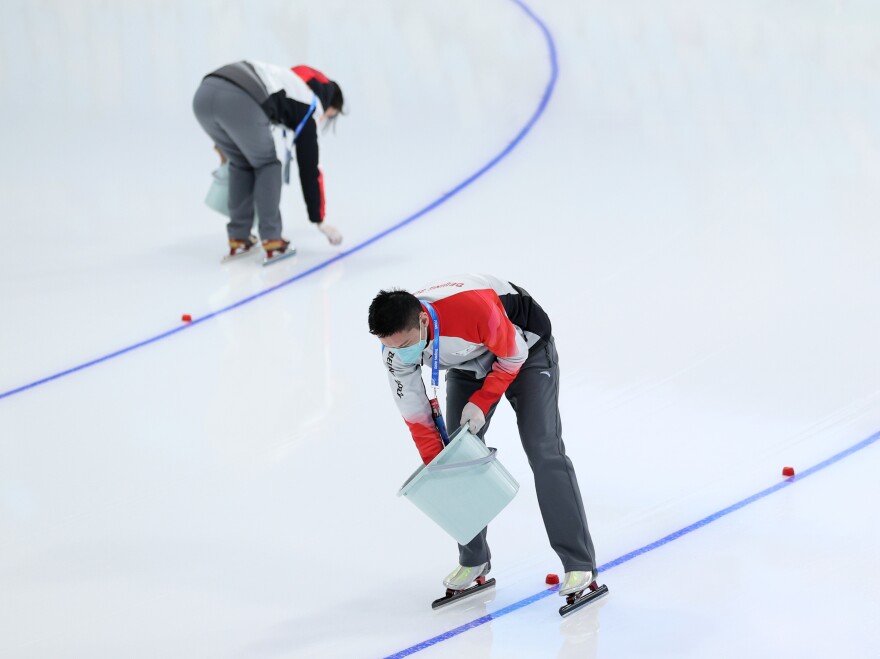BEIJING — As the first full day of events kicked off at the 2022 Winter Olympics, speedskaters took to the ice of the newly-built National Speed Skating Oval.
Beijing hosted the 2008 Summer Games and retooled many of its old venues to be used for winter sports. The Oval is the city's only new ice-sport venue for the competition.
Underneath each of the flying skaters is smooth ice made through a new, environmentally friendly method.
"It's a game changer in a lot of ways," Mark Messer, the Beijing 2022 ice technician at the National Speed Skating Oval, said.
As athletes prepare to compete in a series of speedskating events, they have to worry about familiarizing themselves with the Oval's new conditions.
"It was something new. I was asking other skaters how it feels," Italy's Francesca Lollobrigida said. "Some people were saying it was softer. But it was different day by day."
She was one of the 20 women to skate first at the venue during Saturday's 3,000-meter event at the Oval.
Lollobrigida competed against Canada's Isabelle Weidemann and the Netherland's Irene Schouten.
Weidemann tried to prepare herself as much as possible in the lead-up to the race.
"The ice is a little bit different than what we are used to in Calgary," she said. Coming into it, she "knew the ice wasn't going to be forgiving."
Ahead of the first competition, Messer, who spent nearly 40 years curating the ice at the Calgary Olympic Stadium (one of the two fastest speedskating venues in the world) was expecting to win skaters over.
"I wouldn't say I know everything, but I know enough," he said of his ice-making abilities.
What's so special about this ice?
Beijing organizers switched from using ammonia to carbon dioxide refrigerants for the new venue's surface. The change is the same as planting upwards of 1.2 million trees, according to organizers.
"We have to go back to the natural refrigerants that are not going to destroy this planet," Messer said. "We have to get away from all the others that have been used (until now), so it's a great step in that direction."
The new cooling technique was completely new to China.
Messer said the technology is similar to how carbon dioxide is used in a household fire extinguisher.

"The CO2 gas is compressed and held at high pressure, and when you release that pressure, the nozzle of the fire extinguisher gets cold," he explained. "That's basically what we are doing here."
Technicians compress the carbon dioxide, store it, then push the gas through pipes in the floor. The gas expands and takes the heat out of the Oval's floor, making it cold enough to form ice. But key to getting the perfect ice is controlling the speed this gas flows out of the pipes, Messer said.
"When you change temperatures, (the gas) comes in a hurry so we also have to look at how far it might overshoot, and if it gets colder than we need it to," he said.
On Saturday, it seemed the ice worked out for the three medalists.
Ultimately, Lollobrigida won silver in her race and Weidemann bronze. Schouten took gold and set a new Olympic record of 3:56:93.
"Today was perfect, the timing was perfect," Lollobrigida said. The ice allowed for major speed, she added. She's looking forward to her next turn around the Oval.
Copyright 2022 NPR. To see more, visit https://www.npr.org.



